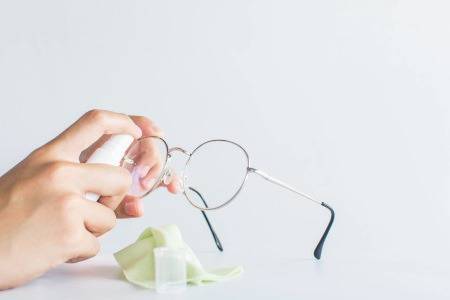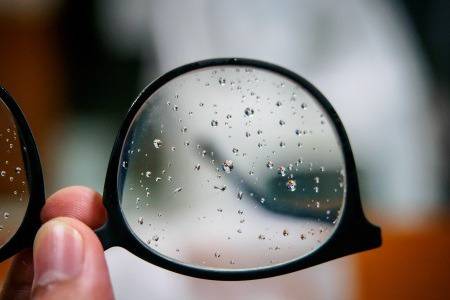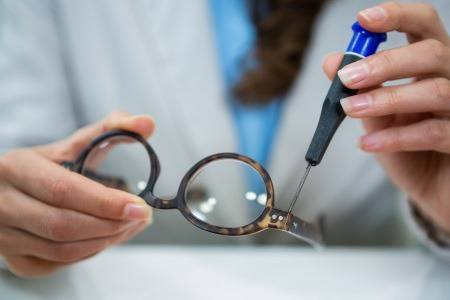Glasses Care and Cleaning
1. always store your glasses in their case
2. always place the glasses with the lenses facing upwards
3. always clean properly
For optimal performance, wash glasses daily with lukewarm (never hot) water. If necessary, wash the surface of each lens with a neutral liquid detergent. Dab with a clean, soft, absorbent cloth to remove excess water, finish by wiping only with the cleaning cloth provided. Do not clean the lenses with paper or tissue-based products. Do not use abrasive cleaners, soaps or detergents that may leave deposits on the lenses. Do not use tissues with added lotions, lanolin, silicone or other cleaners as they will leave a film on the lenses.
Cleaning Cloth
A cleaning cloth is included in each delivery. A clean cloth is ideal for cleaning the glasses and removing any stains. It is recommended to wash the cloth often to keep it free of dust, dirt and oils that could damage the lenses. Wash with lukewarm water and soap, but do not use fabric softener, as it may leave a film on the lenses.

Graffi
To help significantly prolong the life of the lenses, remove dirt and other particles with proper cleaning, keep the glasses in their case when not in use. Proper cleaning also helps to minimise scratches.
Heat
Excessive heat or a sudden change in temperature can deteriorate the lenses or deform the nylon frame. Do not place the glasses where excessive heat is expected, for example on the dashboard of a car, or take great care when opening the oven or the lid of boiling pots and pans.
Chemicals
Some commonly used chemicals react negatively with the frame material and metal oxides used on lens coatings. Avoid contact with acetone (product for removing nail polish), caustic solutions (glass cleaners or other ammonia-based products), methylene-containing hair sprays (indicated on the label), chlorine (from swimming pools or unfiltered water) or glue.

Hard Water and Salt Water.
Hard water and salt water contain high levels of dissolved minerals, especially calcium and magnesium. It is sometimes softened by the addition of sodium during the filtering process. Common examples include swimming pool water and unfiltered water, such as sprinkler water or seawater. Hard water and salt water can be harmful to spectacles, as they leave white stains on the lenses once dried, which can damage the surface treatments of the lens. To avoid damage, simply rinse your sunglasses or eyeglasses with filtered (tap) water and dry with a clean cloth as described above.
Periodic maintenance
We recommend that you come at least twice a year (e.g. March, end of the cold period, and September, end of the warm period) to our Centres, where experienced technicians will tighten the screws of the lens retainer and temples, and carry out the anatomo-functional check of the glasses.

